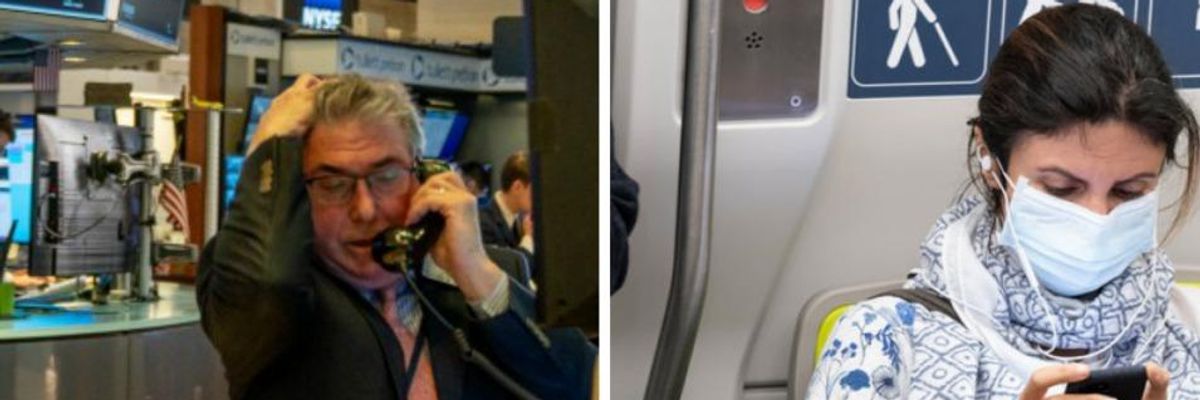Hours after Republican leaders in Congress derided a Democratic proposal to provide healthcare and economic relief to Americans affected by the coronavirus pandemic as a burdensome "ideological wish list," the Federal Reserve moved to inject $1.5 trillion into the bond market to keep the financial system stable.
The decision followed a tumultuous week on Wall Street, with the Dow Jones index plummeting 2,200 points Thursday morning after the White House announced that travel will be restricted from 26 European countries.
The federal government, however, has yet to step in to provide assistance and peace of mind to the millions of working Americans who have no paid sick leave, those who are uninsured and have no way of paying for testing and treatment for the coronavirus, and nearly half a million children whose schools have closed as a precautionary measure.
Earlier on Thursday, House Democrats introduced a bill to provide all working Americans with 14 days of emergency paid sick leave, increase Medicaid funding, and free coronavirus testing. Progressives including Rep. Alexandria Ocasio-Cortez (D-N.Y.) called for Democrats to consider more measures including debt relief.
"The amount that the Fed just injected almost covers all student loan debt in the U.S.," Ocasio-Cortez tweeted. "There is absolutely NO excuse for not pausing student debt collections, planning for mortgage and rent relief, etc."
As the virus, officially known as COVID-19, spread to all but five states and infected more than 1,400 people in the U.S., a White House official dismissed the possibility of the bill passing, accusing Democrats of "letting fear surrounding coronavirus be a vehicles to push their radical left agenda."
President Donald Trump added that the GOP would not allow the pandemic to be a way for Democrats to "get some of the goodies they have been able to get for the last 25 years."
Republicans in the Senate announced they would not take up the House bill until after a recess, a delay which could make it impossible for many working Americans to follow infectious disease efforts to stay home and avoid crowded places in order to slow the spread of the virus and avoid overwhelming the health system.
On social media, many echoed Ocasio-Cortez's condemnation of the federal government's priorities, as other industrialized countries reported testing and treating coronavirus patients at far faster rates than the United States.
"$1.5 trillion is equal to the student debt Bernie Sanders wants to wipe out," tweeted writer Dr. Steven Thrasher. "While this plan was called pie in the sky by some Democrats, the same amount can be tossed to Wall Street with no campaign or public debate one afternoon?"




